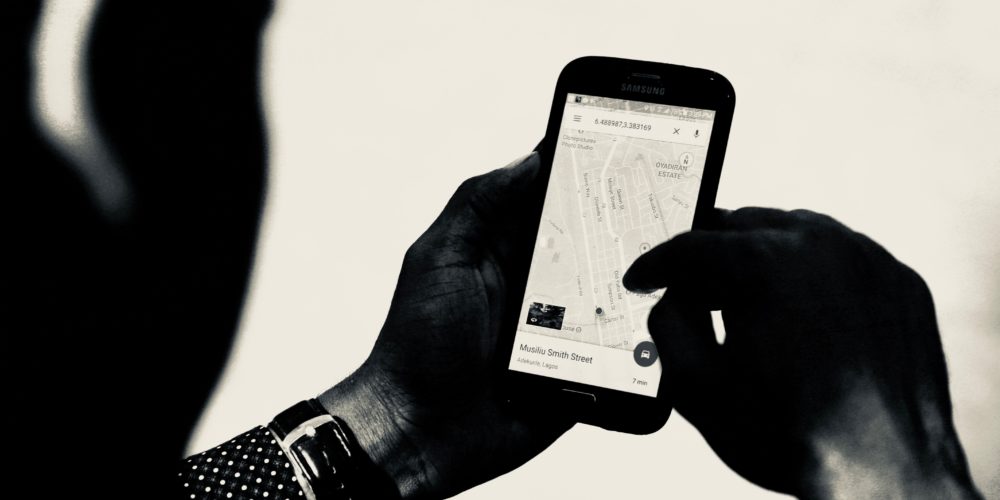Is your product too useful to ignore?

Google Maps has more than one billion active users. Nine zeroes.
I use it every day. You probably do too. It’s just too damn convenient to ignore, isn’t it? It maps the city out perfectly, tells you where the traffic is and which roads to avoid, estimates pretty accurate arrival times, and allows you to share your ETA with those who are waiting for you.
What’s not to like?
It’s not perfect, mind. Like most things Google, it lacks a sense of taste. It’s never elegant. The interface never feels like it’s designed for users who will be peering at it while rushing somewhere. And yet. Nine zeroes. It beats all its competitors hands down.
How come we all use it all the time, though? Consider this: if a man called Mr Google waited for you outside your gate every morning; got into the passenger seat as you left; and then told you which route was best for you as you drove, would you be cool with that? What if this constant companion was taking notes all the time about your destinations and interests? Hell no…
And yet that’s what we let Google do every day, as John Naughton pointed out in the New Statesman magazine earlier this year. We trade the usefulness and convenience of their products against our privacy. We allow ourselves to be turned into clouds of very intimate data, so that advertisers can pop up and try to coax us into buying their stuff. Most people don’t seem to care. I do, and yet I keep using Google Maps. Nine zeroes.
The utility and convenience of the product wins. We look away from the potential dark side, because the thing itself is just too damn useful.
I buy a lot of books from Amazon. I wish I didn’t. Amazon poses a serious existential threat to something that I love deeply: physical bookshops. I don’t want a world without old-fashioned bookshops in it. I want to go to them and be surprised by what I find in the rear shelves; I want to chat with people who get purpose from selling books. They’re usually good, decent, old-fashioned folks, not rapacious money-grabbers. But they’re dying out, because people find Amazon just too convenient.
Why do I still give Amazon my money? Because my taste in books is both too wide and too esoteric to be catered for by the average bookshop. I do buy many, many regular books (and some unusual ones) from my favourite local stores; but it is simply not worth their while to stock all the offbeat titles I am usually looking for. And so I often end up at Amazon, simply because the book I want is pretty much always there. These days, it can make its way to me pretty quickly too. And when the urgency is high, as it sometimes is with professional books, one tap and the book appears on my Kindle app in seconds…
So then. I patronise these businesses even though I am wary of them. I don’t want giant corporations to know my every move and every purchase and every preference all the time. And yet. I’m still there. Why? Because they have made themselves impossible to detach from.
If you are a businessperson, you should be very alert to this phenomenon. How easy is it to buy from you? How awkward do you make it for your busy customers to get your product? How much unnecessary time do they expend in getting to you? In this tap-tap-done world, where do you sit? Do you satisfy a need so uniquely and so powerfully that they will put up with your inefficiencies?
Beyond just creating some froth and fanfare for Customer Service Week, most organizations need to give a lot more attention to regular customer experience and daily customer journeys. What is it like to be a user of our services? Where do the delays and irritations occur? Can we smooth them out? Can new tech reduce the frictions? Can well-spoken, helpful human beings make it all OK?
Are you even asking these questions?
Love them or hate them, the tech giants are making it very, very easy to become their customers (in Google’s case, since we pay nothing for most of their services, we aren’t even customers – we are the product being packaged and sold to advertisers). There are deep lessons about user interfaces, ease of use and sheer convenience to be had here – if we pay attention.
Now if you’ll forgive me, I must go and support a local bookshop. And I won’t need a map to find it…
(Sunday Nation, 11 October 2020)

Buy Sunny Bindra's new book
The X in CX
here »
Popular Posts
- Where are you rushing to—your funeral?June 29, 2025
- How to spot a real thinkerJune 15, 2025
- The pause that saves usJune 8, 2025
- Built the app, forgot the flowJune 22, 2025
- The map will appear—once you start walking.July 6, 2025















